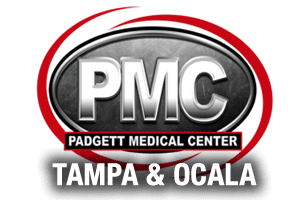Attention-deficit/hyperactivity disorder (ADHD or ADD) isn’t just a childhood problem. An estimated 4 percent of the adult population in the United States has ADHD. But few adults ever receive an accurate diagnosis or appropriate treatment. Adult ADD is a mental condition that intrudes on a person’s ability to maintain attention, manage excitable behavior, and control impulsivity. Medication is not the end-all-be-all for this neurodevelopment disorder. However, medication does help adults better navigate the difficulties of their ADHD, such as improving attention and reducing impulsivity. At Padgett Medical Center, we focus on helping our patients monitor ADD with medication management. We offer the best medication for ADD in the Tampa area.
How ADHD Medication Works
Unfortunately, ADHD cannot be cured by medicines. But the good news is that medication can reduce the core symptoms of ADHD during the time it is active in the body. It does this by helping more neurotransmitters reach the next neuron. One of the neurotransmitters involved is dopamine, which is the main chemical messenger in the brain. Nicknamed the feel-good neurotransmitter, dopamine is associated with pleasure, motivation, attention, and movement. When ADHD medication is effective, it leads to increases in dopamine at connections between brain cells. This boosts concentration and focus in ADHDers while reducing hyperactive and impulsive behaviors.
Choosing an Adult ADD Medication
Figuring out the appropriate ADHD medicine is a process because everyone has a unique brain profile. It’s important for adult patients to candidly discuss with their doctors their personal experience with the disorder to match their specific needs with an ADHD medication that will get their symptoms under control. The process of choosing a care plan is largely dependent on the individual’s overall health and how the disorder affects their everyday life.
Monitoring the Effects of Medication for ADD
All medications can cause side effects, which may lead to new symptoms or worsen existing symptoms. Therefore, it’s crucial to track the progress and setbacks of your treatment plan to ensure safe and effective use of the drugs prescribed by your health care professional. Monitoring your response to ADHD medication also helps your doctor figure out which medicine works best for you and at what dosage.
Improving Functioning & Quality of Life
The goal of medication for ADD isn’t just to improve the core symptoms of the disorder. Perhaps the most desired outcome for an adult with ADHD is improving his or her function in the real world and ability to cope with the demands of daily life so that he or she can start succeeding on their own terms.
Medication Therapy
Adults with ADHD often have at least one other coexisting psychological or developmental condition. Some of these other disorders include bipolar disorder, anxiety disorder, and depression. When another disorder coexists with ADHD, it makes treatment more challenging. Although there is no controlled research on medication therapy and co-existing conditions, medication therapy is a popular form of treatment that can improve therapeutic outcomes for patients.
Contact Us
Our medical professionals are trained in attention-deficit/hyperactivity disorder and can help you turn the difficulties of adult ADD around. Visit our Tampa office today to learn how we can help you.

